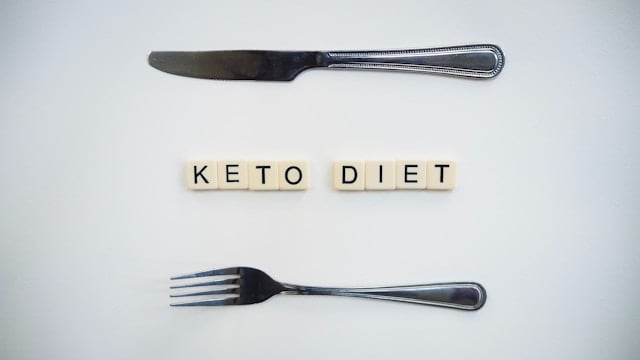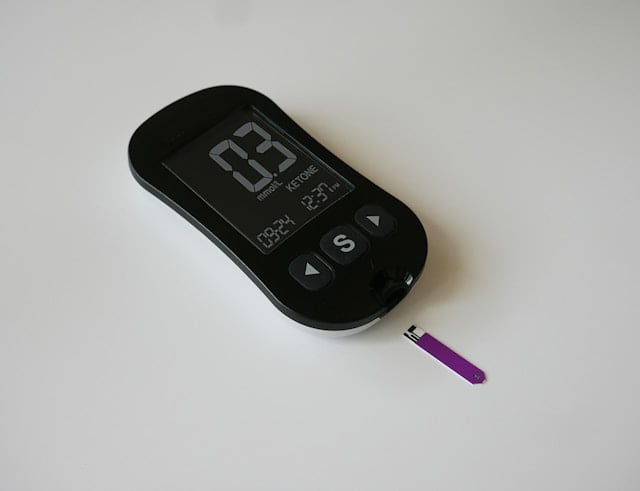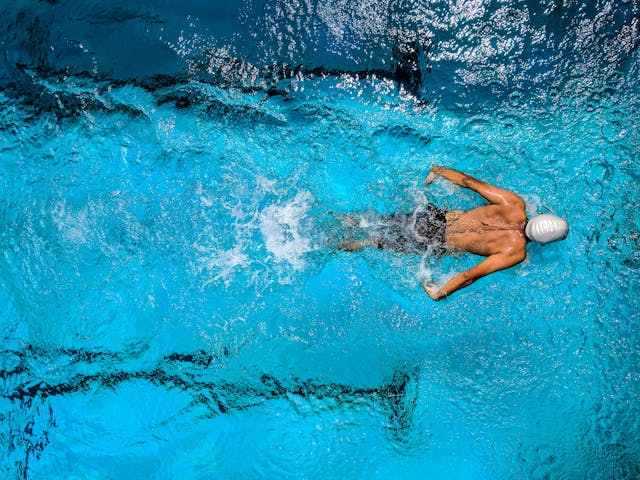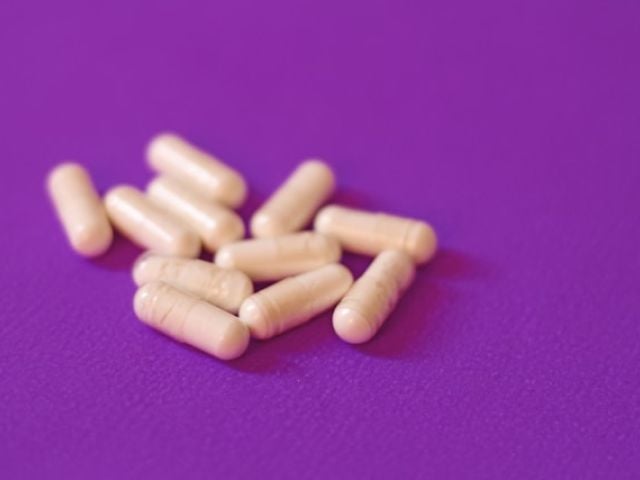
Should You Take Creatine on a Keto Diet?
You’ve committed to keto and you’re seeing great fat loss results. But your gym performance is suffering, and you’re wondering if creatine could help.
The question keeps nagging at you: Will creatine kick you out of ketosis? Does it contain hidden carbohydrates that could ruin your progress?
These concerns are completely understandable. Let’s examine what the research actually shows about this popular combination.
Key Takeaways
- Creatine has zero carbs and won’t break ketosis
- Helps maintain strength and power when carbs are limited
- Combines keto’s fat-burning with creatine’s muscle benefits
- Safe when used properly with adequate hydration
Understanding Creatine and the Ketogenic Diet
Many people wonder if these two approaches work together. The science shows they complement each other beautifully.
What is Creatine?
Creatine is a natural compound found in your muscles and brain. Your body makes about 1-2 grams daily in your liver, kidneys, and pancreas.
You can also get creatine from red meat, fish, and poultry. But food sources only provide small amounts compared to what your muscles can store.
Creatine helps regenerate ATP1, your body’s energy currency. This process happens during short bursts of intense activity like sprinting or heavy lifting.
How Does the Keto Diet Work?
The ketogenic diet typically consists of 70-80% fat, 15-25% protein, and less than 10% carbohydrates. This usually means eating under 50 grams of carbs per day.
When you restrict carbs this severely, your body enters ketosis2. In this state, your liver breaks down fat into ketone bodies that fuel your brain and muscles.
Can You Take Creatine on Keto?

This question comes up frequently among keto dieters. The answer is straightforward and backed by solid research.
Does Creatine Break Ketosis?
No, creatine won’t break ketosis. Pure creatine monohydrate contains essentially zero carbohydrates, making it completely compatible with ketogenic diets.
A practical test showed that taking 5-10 grams of creatine resulted in minimal blood glucose changes3. Ketone levels only increased slightly by 0.05 on average.
The key is choosing the right product. Avoid creatine supplements with added sugars or carbohydrates that could interfere with ketosis.
Creatine Monohydrate and Carbs
Creatine monohydrate is the gold standard form. It’s been studied more than any other type and contains no carbohydrates whatsoever.
Some creatine products include added ingredients like dextrose or maltodextrin. These carbohydrate additions can potentially affect ketosis, so read labels carefully.
What to look for:
- Pure creatine monohydrate powder
- No added sugars or starches
- Simple ingredient lists
- Third-party testing certificates
Benefits of Creatine for Keto Dieters

Following a ketogenic diet while using creatine offers several unique advantages that neither approach provides alone.
Performance During High-Intensity Workouts
Ketogenic diets can limit performance during intense bursts of activity. This happens because you’re not storing much glycogen in your muscles.
Research shows that creatine supplementation during a low-carb diet helped “attenuate the decrement in high-intensity exercise performance”4. One study found that while a low-carb diet alone decreased performance by 35%, the group using creatine showed a 31% improvement.
This is where creatine shines. It directly supports the phosphocreatine system used for short, explosive movements.
Muscle Mass Preservation
Ketogenic diets may initially lead to some muscle loss, particularly in the first four weeks. Creatine supplementation can help preserve lean body mass during this adaptation period.
Creatine works by increasing intracellular water content and enhancing protein synthesis. This supports muscle cell volume and helps you build muscle even when carbs are limited.
The combination of adequate protein intake and creatine supplementation gives you the best chance of maintaining muscle while losing fat.
Cognitive Benefits
Your brain needs ATP just like your muscles do. Creatine helps replenish ATP in neurons, which can improve mental performance.
A 2024 systematic review found that adults on creatine had better memory and faster processing speed5. When you combine this with ketosis providing steady brain fuel through ketones, you get a powerful cognitive boost.
This dual approach to brain fuel can be especially helpful during the initial keto adaptation phase when some people experience brain fog.
How Creatine Works on a Ketogenic Diet

Understanding the science helps you maximize the benefits of this combination approach.
Energy Systems on Keto
Your body uses three main energy systems. The ketogenic diet affects each one differently.
Fat oxidation improves during longer, steady-state activities. But the phosphocreatine system used for short, explosive movements can be compromised when glycogen stores are low.
Energy system breakdown:
- Phosphocreatine system: 0-10 seconds (sprints, heavy lifts)
- Glycolytic system: 10 seconds-2 minutes (moderate intensity)
- Oxidative system: 2+ minutes (endurance activities)
ATP Production
Creatine directly supports ATP regeneration through the phosphocreatine system. This molecule rapidly donates phosphate to ADP, creating fresh ATP when you need it most.
On keto, this system becomes even more important because you can’t rely on quick glucose for energy. Creatine helps bridge this gap by ensuring you have adequate ATP for high-intensity efforts.
Recommended Dosage of Creatine
Getting the right amount of creatine matters for both safety and effectiveness.
Dosage of Creatine Monohydrate
The standard maintenance dose is 3-5 grams daily. Most studies use 5 grams as the standard amount, though smaller individuals may benefit from 3 grams per day.
You have two dosing options:
Maintenance approach:
- 3-5 grams daily from the start
- Takes 3-4 weeks to fully saturate muscles
- Easier on your digestive system
Loading approach:
- 20 grams daily for 5-7 days (split into 4 doses)
- Then 3-5 grams daily for maintenance
- Faster muscle saturation but not necessary
When to Take Your Supplement
Timing matters less than consistency. Taking creatine at the same time each day helps establish a routine.
Best practices:
- With protein-containing meals for better absorption
- 30 minutes before or after workouts
- Consistent daily timing
- Plenty of water
For keto dieters, taking creatine with a protein-rich meal can enhance absorption while maintaining ketosis. You don’t need carbohydrates for effective creatine uptake.
Safety and Side Effects

Creatine has an excellent safety profile when used properly. However, combining it with keto requires some specific considerations.
Kidney Function Concerns
A comprehensive review of 685 human clinical trials involving over 26,000 participants found no significant difference in side effects between creatine and placebo groups6.
However, ketogenic diets may increase serum creatinine levels in some people. This appears related to increased muscle metabolism and protein intake rather than kidney damage.
Risk mitigation strategies:
- Monitor kidney function markers if using long-term
- Maintain adequate hydration
- Consider medical supervision if you have pre-existing kidney conditions
Hydration and Electrolyte Balance
Both creatine and ketogenic diets affect hydration status. Creatine increases intracellular water retention, while ketogenic diets have a diuretic effect.
You’ll need to increase your water intake when combining both approaches. This is especially important during the initial weeks of keto adaptation.
Hydration guidelines:
- Drink at least 8-10 glasses of water daily
- Monitor urine color (should be pale yellow)
- Include electrolytes (sodium, potassium, magnesium)
- Pay attention to thirst cues
Foods High in Creatine vs Creatine Supplements

While you can get some creatine from food, supplementation offers clear advantages for keto dieters.
Natural Sources
The best natural sources of creatine include:
| Food Source | Creatine Content (per 100g) |
|---|---|
| Herring | 6.5-10g |
| Beef | 5g |
| Salmon | 4.5g |
| Tuna | 4g |
| Chicken | 3.4g |
| Milk | 0.1g |
Why Supplementation Helps
Even eating plenty of meat and fish, you’d struggle to get optimal amounts of creatine from food alone. Cooking also reduces the creatine content in foods.
Supplementation gives you precise control over your creatine intake. This is especially valuable when following a ketogenic diet that already requires careful macro tracking.
Advantages of Creatine for Keto Athletes

Athletes following ketogenic diets face unique challenges that creatine can help address.
Resistance Training Benefits
Resistance training while on keto can be challenging initially. Your muscles may feel flat or weak as they adapt to burning fat for fuel.
Creatine helps maintain power output during heavy lifting sessions. This allows you to continue building strength even when your carbohydrate intake is severely limited.
Research shows creatine is particularly valuable for maintaining power and strength during repeated high-intensity efforts1. This makes it perfect for weightlifting, CrossFit, or similar activities.
Building Lean Body Mass
You can absolutely build muscle on a ketogenic diet with adequate protein. Adding creatine gives you an extra edge by making your workouts more effective.
The combination works synergistically. Keto helps you lose fat while creatine supports muscle growth and strength gains. This leads to improved body composition over time.
Key factors for success:
- Adequate protein intake (1.6-2.2g per kg body weight)
- Consistent resistance training
- Proper recovery between sessions
- Sufficient calories for your goals
Choosing the Right Creatine Products
Not all creatine supplements are created equal, especially when you’re following a ketogenic diet.
What to Look For
The best creatine supplements for keto dieters share certain characteristics:
Must-have features:
- Pure creatine monohydrate
- No added sugars or carbohydrates
- Third-party testing for purity
- Minimal ingredients list
- Unflavored or naturally flavored
Red flags to avoid:
- Proprietary blends with undisclosed amounts
- Added dextrose or maltodextrin
- Artificial colors or unnecessary additives
- Unrealistic marketing claims
Keto-Friendly Options
Jinfiniti’s Creatine + ATP offers a unique advantage for keto dieters. It combines 4 grams of creatine monohydrate with 400mg of Disodium ATP, providing both immediate and sustained energy support.
This formulation is particularly beneficial because it addresses both the phosphocreatine system (through creatine) and direct ATP availability. The product contains no carbohydrates, making it perfectly compatible with ketosis.
For those looking to optimize their overall cellular energy production, Jinfiniti’s Vitality↑® NAD+ Booster can complement your creatine supplementation. This powder contains creatine monohydrate along with NAD+ precursors that support cellular energy at the mitochondrial level.
Getting Started: Practical Tips
Ready to combine creatine with your keto diet? Here’s how to do it safely and effectively.
Week 1-2: Start slow
- Begin with 3 grams daily
- Take with a protein-rich meal
- Increase water intake by 16-20 ounces
- Monitor how you feel
Week 3-4: Assess and adjust
- Increase to 5 grams if well-tolerated
- Track your workout performance
- Note any changes in body weight (expect 1-3 pounds from water)
- Continue monitoring hydration
Long-term maintenance:
- Stick with 3-5 grams daily
- Take consistently at the same time
- Don’t cycle off unless you stop taking for other reasons
- Consider periodic kidney function testing
The Final Scoop
Creatine and ketogenic diets work together beautifully. This combination lets you enjoy the fat-burning benefits of keto while maintaining the strength and power that creatine provides.
The research is clear: creatine won’t break ketosis, and it can help offset some of the performance challenges that come with low-carb eating. Whether you’re lifting weights, doing high-intensity workouts, or just want to preserve muscle mass, creatine supplementation makes sense.
Start with a quality creatine monohydrate product, stay well-hydrated, and be consistent with your dosing. Your muscles (and your brain) will thank you for giving them the energy support they need to thrive on keto.
Check out our creatine guide for beginners to find out more about how it can fit into your overall health optimization strategy.
- https://pubmed.ncbi.nlm.nih.gov/33214000/ ↩︎
- https://www.frontiersin.org/journals/immunology/articles/10.3389/fimmu.2024.1425816/full ↩︎
- https://www.youtube.com/watch?v=6fzZFuQTSN4&t=2s ↩︎
- https://www.journalofexerciseandnutrition.com/index.php/JEN/article/view/174 ↩︎
- https://www.mdpi.com/2072-6643/17/1/95 ↩︎
- https://www.tandfonline.com/doi/full/10.1080/15502783.2025.2488937 ↩︎












